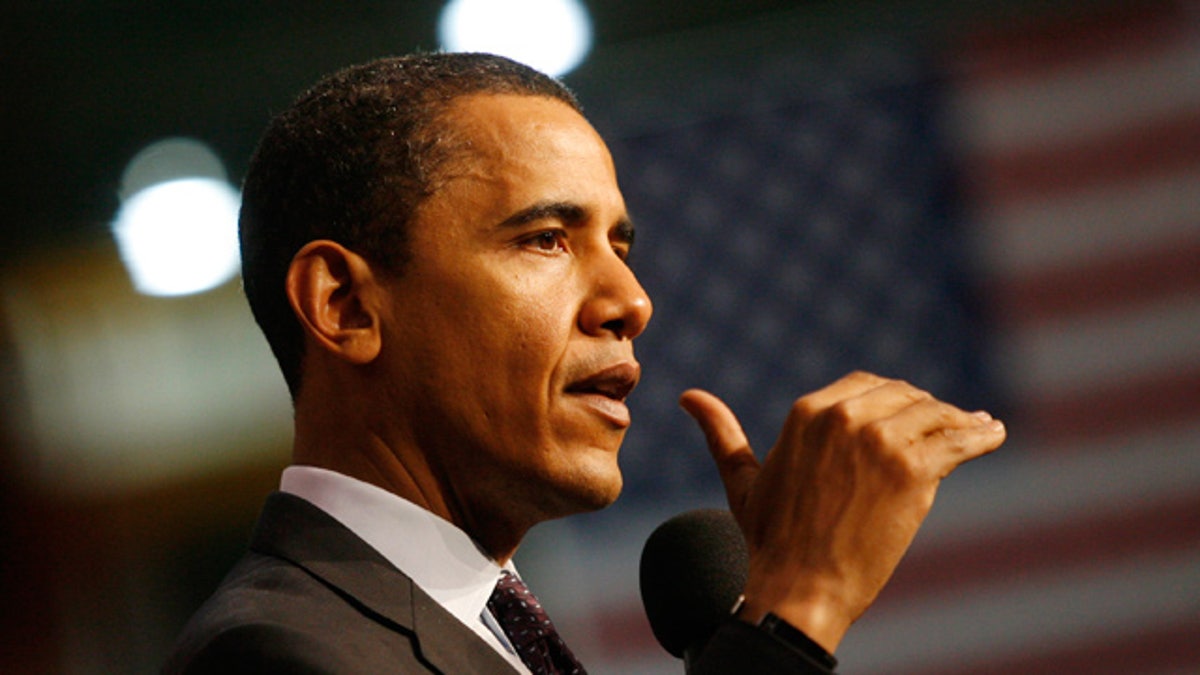
(Reuters)
Last week in Elkhart, Indiana, President Obama launched his 2016 campaign.
It is not to be confused with Hillary Clinton’s race for the White House. Clinton is running for the presidency. Obama is running for the rest of his life--and beyond.
Like his predecessors, Obama wants an honorable and lucrative retirement, influence on matters close to his heart and, most of all, a place in history. Offices—even the highest offices—come and go. Legacy is forever.
It is not a secret that Obama feels underestimated. He especially resents what he regards as myths about the demise of American greatness that have been propagated in the primaries. During the next few months he will use the use his bully pulpit to make the case that he deserves a place on the A-list of former chief executives.
He knows it will be hard sale.
“By almost every economic measure, America is better off than when I came here at the beginning of my presidency,” he told the crowd in Elkhart. “That’s the truth. That’s true. It’s true.” [my italics]
Could be, but a lot of Americans aren’t feeling it. Polls show that three-quarters of the public think the country is going in the wrong direction.
This narrative has been fed by Donald Trump, who rails against “stupid” political hacks who are selling out the country through terrible trade deals, unfettered immigration and profligate spending that has resulted in a ruinous public debt. But Trump is the opposition. He’s supposed to be say things like that.
Sanders and Clinton are a different matter. They are theoretically on Obama’s side.
Bernie is only a nominal Democrat. Still, he is running as one while trying to pull the party planks out from under the president. The Senator portrays America under Obama as an economic and social dystopia. The rapacious 0.1% are gorging themselves at the expense of the middle class and the poor? Wages haven’t increased in years? College kids can’t afford tuition? Jobs are migrating to dollar-an-hour sweatshops overseas? Well, who’s been in charge? The damage is so great the only a Movement led by Bernie Sanders himself can repair the country.
Hillary Clinton hasn’t been quite so blatant, but she also hasn’t rushed to the defense of her former boss. She has joined Sanders (and Trump) in opposing the president’s most important trade initiative, the Trans-Pacific Partnership. And she has refrained from fully embracing Obama’s rosy view of his economic stewardship. That was clear in mid-May when she announced her intention of putting her husband in charge of “revitalizing” the economy. If things are as good as Obama told the folks in Elkhart, why would Hillary need to call Bill in from the bullpen?
Bill himself provided the answer last March, when he publicly derided “awful legacy” of the last eight years, and promised that his wife (presumably with his help) would set things straight.
The economy is not Obama’s only vulnerability. The president ran as a racial unifier, but now even his own party appears split along racial lines. The Affordable Health Care Act, his signature domestic achievement, has been something of a disappointment. Sanders want to replace it with single payer insurance; Hillary merely concedes that the plan could certainly use some improvement. And the former Secretary of State has not been especially vocal in defending the president’s record on foreign policy.
Sure, if Hillary Clinton wins the Democratic nomination, Obama will campaign for her. But how he campaigns it will depend on the quid pro quo. If she can marginalize and silence the carping Sanders, keep Bill Clinton quiet, rediscover the many virtues of the Obama administration and run as a third term candidate, then the president (whose personal popularity is high among minority and young voters) will do his best to put her in the White House. But if she insists that the situation is dire and only she can save the day, Obama may decide that his place in history will be better appreciated after a few years of Donald Trump in the Oval Office.
